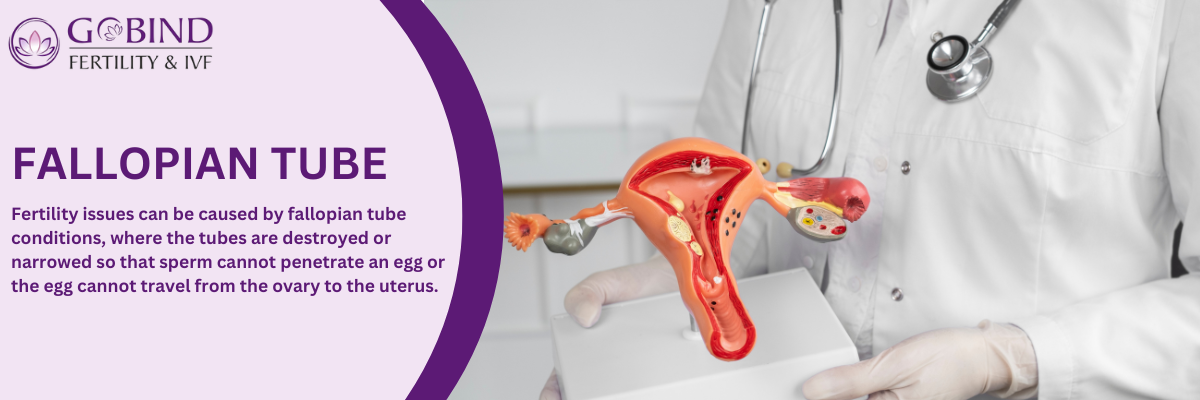

Fallopian Tube
Fallopian tubes, oviducts, or uterine tubes are two muscular tubes present on either side of a female mammal's body and link the ovarian end to the uterine end. They are a component of the female reproductive system and play a crucial role in this subject.
Fallopian Tube Problems Fallopian Tube Problems (Blocked Tubes, Hydrosalpinx, etc.)
Fallopian tube problems can impact fertility and reproductive health in women. In India tuberculosis is the major cause of tubal damage, if tubes are damaged by TB detail investigations are required. Some common fallopian tube issues include:
1. Blocked Fallopian Tubes: Scar tissue formation, endometriosis, pelvic inflammatory disease (PID), and prior abdominal surgery can all cause blockages.
- Blocked tubes make it difficult or impossible for the egg to get through to the uterus, which results in fertilization.
2. Hydrosalpinx: A disorder in which one or both fallopian tubes obstruct and fill with fluid Toxic chemicals present in this fluid have the potential to harm embryos and lower the success rate of in vitro fertilization (IVF).
3. Tubal Ectopic Pregnancy: This occurs when an egg that has been fertilized implants and grows in the fallopian tube rather than the uterus. can result in bleeding that is potentially fatal and necessitates quick medical intervention.
4. Tubal Disease or Damage: The fallopian tubes may become scarred or damaged as a result of infections such as PID, prior ectopic pregnancies, or endometriosis.
Symptoms of fallopian tube problems may include:
- Pelvic or abdominal pain
- Irregular menstrual bleeding
- Infertility
Diagnosis typically involves:
- Hysterosalpingogram (HSG) - an X-ray test to visualize the fallopian tubes
- Laparoscopy - a surgical procedure to directly visualize the tubes
- Ultrasound
Treatment options depend on the specific condition and may include:
- Antibiotics for infections
- Surgery to remove blockages or repair damaged tubes
- In vitro fertilization (IVF) to bypass the fallopian tubes
- In severe cases, removal of the fallopian tubes (salpingectomy)
Early detection and treatment of fallopian tube problems are crucial for preserving fertility and preventing potential complications. Regular gynecological check-ups and prompt medical attention for any symptoms can help maintain reproductive health.

















